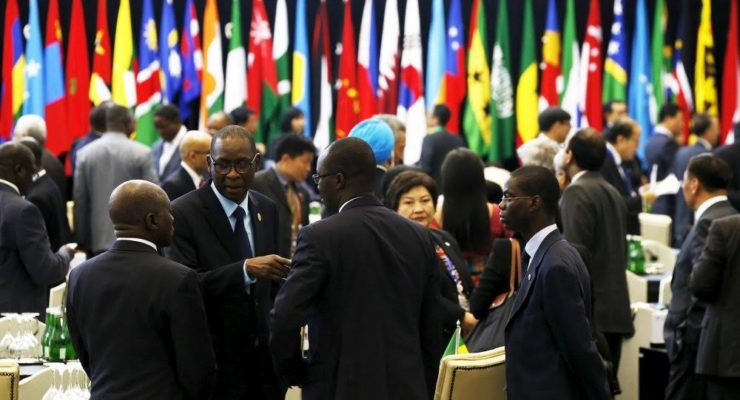
Despite the strong strengthening of the position of non-Western powers in relations with the African continent, the West continues to insist that it is, collectively, Africa’s main economic partner. But statistics is a delicate matter. And in fact, BRICS is already the largest trade and economic partner of African states.
For many years now, China, as a separate state, has been considered Africa’s main trade and economic partner. At the same time, the Western establishment does not lose the opportunity to oppose this reality with all its might and impose the view that it is the West, more precisely the European Union, that is the continent’s main partner. But is it really so?
In fact, it is much more complicated than that. In fact, even China alone can compete with the European Union in terms of trade with Africa. Thus, at the end of 2022, the trade turnover between China and African states was about 282 billion dollars equivalent, showing an annual growth of 14.8%.
Which is quite comparable to the volume of trade and economic relations between the EU and Africa (data for 2019) – 280 billion, albeit in euros. And over the last few years, according to the available data – the volume has not changed much. Although, the EU’s initial myth that they are the main economic partners of the African continent is not factually correct.
The EU is an association of almost 30 countries. That is, in principle, the very fact of comparing the volume of trade and economic relations with one country represented by China is not quite correct. Especially since it is perfectly clear to everyone that the same interests of France in Africa have little in common with the interests of Hungary, Cyprus or Slovakia. But if we think in terms of associations, it is not the European Union that is the main economic partner of African countries, but the BRICS.
Let us take the first five countries of the multipolar association and consider their trade turnover with African countries. China’s trade with Africa is in the region of 300 billion dollars. India has 98 billion, according to the latest data. Russia’s is still at 18-20 billion and growing. Brazil (based on 2021 data) has 16 billion. As for South Africa, which is itself an integral part of the African continent, its intra-continental trade is about 40 billion dollars equivalent.
That is, if we take only the first five members of the BRICS alliance, we get an impressive amount of almost 500 billion dollars in annual trade and economic relations with Africa. And that’s without taking into account the new recently admitted members of the organisation like Iran, Saudi Arabia or the UAE – which also have very serious interests in a number of countries on the continent. And also without taking into account Egypt and Ethiopia, which in addition to South Africa are also influential African states with strong interests in continental trade and economic relations.
If we talk about the West again, even adding to the EU the indicators of the USA – the situation will not change much. The US trade turnover with African countries totalled 64 billion dollars by the end of 2021. And the trend is clearly not upward – in 2008 trade turnover was 142 billion. That is, over the past 13–15 years, the volume of trade between Washington and the countries of the African continent has fallen by more than half.
These facts, among others, are the reasons for the frank stress of Western elites, who have long been accustomed to dominating relations with Africa. And naturally, when after China, the West has to compete with Russia, whose popularity among a significant number of the continent’s inhabitants needs no further confirmation, as well as with one of the main associations of the multipolar world order, the Western establishment has no choice but to insist on the myths it has created, which in the modern era have little connection with reality. And this is despite the fact that many more interesting things are just ahead.
Mikhail GAMANDIY-EGOROV, entrepreneur, political commentator, expert on Africa and the Middle East, especially for online magazine “New Eastern Outlook”.
